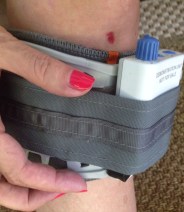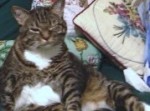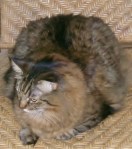 I have purchased a WalkAide System to help minimize foot-drop related to my diagnosis of multiple sclerosis. So far, the device is working well.
I have purchased a WalkAide System to help minimize foot-drop related to my diagnosis of multiple sclerosis. So far, the device is working well.
Next on my Walkaide to-do list is to get a few simple, yet elegant tattoos on my lower right leg to help me place the device correctly so that it will function properly. (If the electrodes are not in the right place, the device won’t work.)
I’m considering two options for the tattoos. Either small dots that look like freckles or small stars placed to look like a constellation, such as the Big Dipper. The first would probably be less painful, while the second seems more creative. It’s a difficult choice, but nonetheless, I plan to be inked by the end of the week.
One of my favorite things about the WalkAide is that I can wear attractive shoes again — not the el-dorko kind that you wear when you use a leg brace, which I did for many years. (If you are interested in a good deal on some slightly used el-dorko shoes, just holler.)
I am also working to resolve a Walkaide-related fashion challenge. I purchased and wore capris with the device this summer, but the legs of most long pants aren’t big enough to wear a Walkaide inside them. I don’t own any palazzo pants or long skirts. They’re just not my style, but maybe it’s time to get some.
Even in the Deep South, where I live, the clichéd frost is already on the pumpkin, and this Halloween weekend is the coldest I can remember. I need winter clothes — skirts and pants, because I will move my capris from the closet to the cedar chest soon. I don’t consider bare calves with goosebumps in November to be a fashion-forward option.
Might I receive an invitation to a fancy holiday soiree this year? It’s possible. I guess I should put some thought into getting gussied up in a fancy outfit. And maybe, I should go ahead and plan to borrow a mink coat from a friend, just in case.
(NOTE: If this post interests you, you might want see my previous posts about the Walkaide System.)

